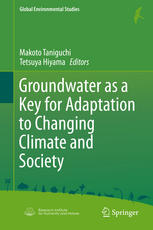

Most ebook files are in PDF format, so you can easily read them using various software such as Foxit Reader or directly on the Google Chrome browser.
Some ebook files are released by publishers in other formats such as .awz, .mobi, .epub, .fb2, etc. You may need to install specific software to read these formats on mobile/PC, such as Calibre.
Please read the tutorial at this link: https://ebookbell.com/faq
We offer FREE conversion to the popular formats you request; however, this may take some time. Therefore, right after payment, please email us, and we will try to provide the service as quickly as possible.
For some exceptional file formats or broken links (if any), please refrain from opening any disputes. Instead, email us first, and we will try to assist within a maximum of 6 hours.
EbookBell Team

4.4
72 reviewsThe book presents an overview of recent advances in knowledge related to the assessment and management of groundwater resources, giving special attention to the uncertainties related to climate change and variability. While proposing strategies of groundwater management as adaptation, alternative and resilience under the changing environments, this book also discusses new directions and initiatives of hydrological study, in particular on the groundwater. Groundwater is a major source of water across much of the world, and acts as a component of the global water cycle on the Earth. Groundwater has the capacity to balance large swings in precipitation and has the potential to supplement surface-water resources when they are close to the limits of sustainability such as during drought. Although groundwater is pivotal to sustain water supplies, these important resources are vulnerable to increased human activities and the uncertain consequences of climate change. This book presents that groundwater with longer resident time of water circulation can be an alternative water resources and environment in changing climate. Assessments of groundwater services and benefit as well as risk are important for sustainable groundwater uses under the climate change. Groundwater which is one of the leys of adaptation to climate change should be treated as common resources and environment beyond the tragedy of the commons and dilemma of the boundaries. While providing a comprehensive description of hydrogeological characteristics of groundwater systems, the present volume also covers important aspects of legal and institutional contexts required for groundwater resources management as well as social and economic considerations. This publication may contribute to an improved understanding of the impacts of climate change and human activity on groundwater resources, provides useful guidance for policy makers and planners to include groundwater into climate change adaptation schemes and strategies.